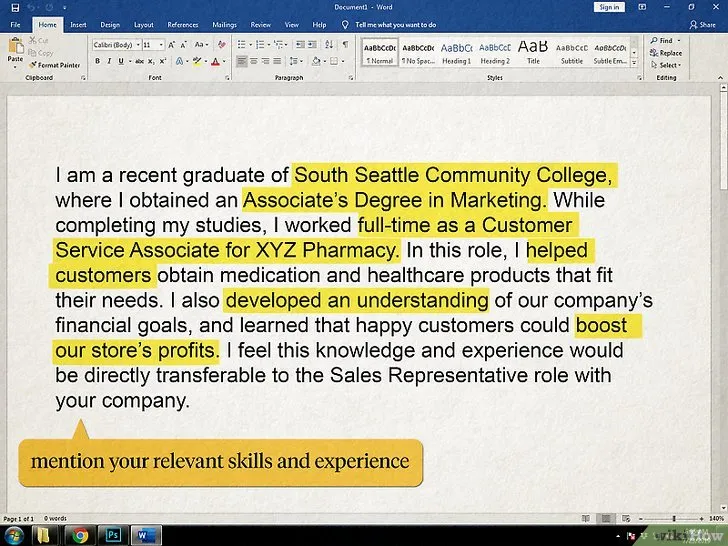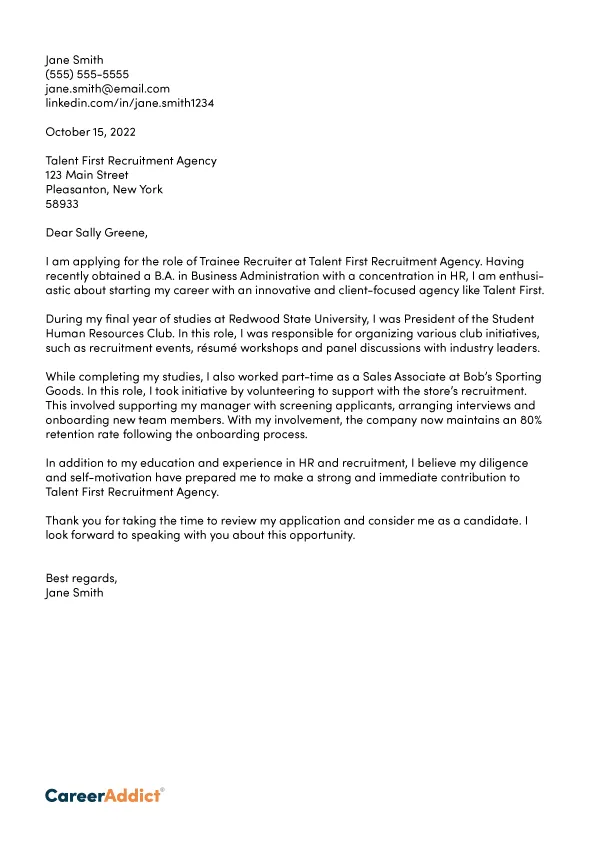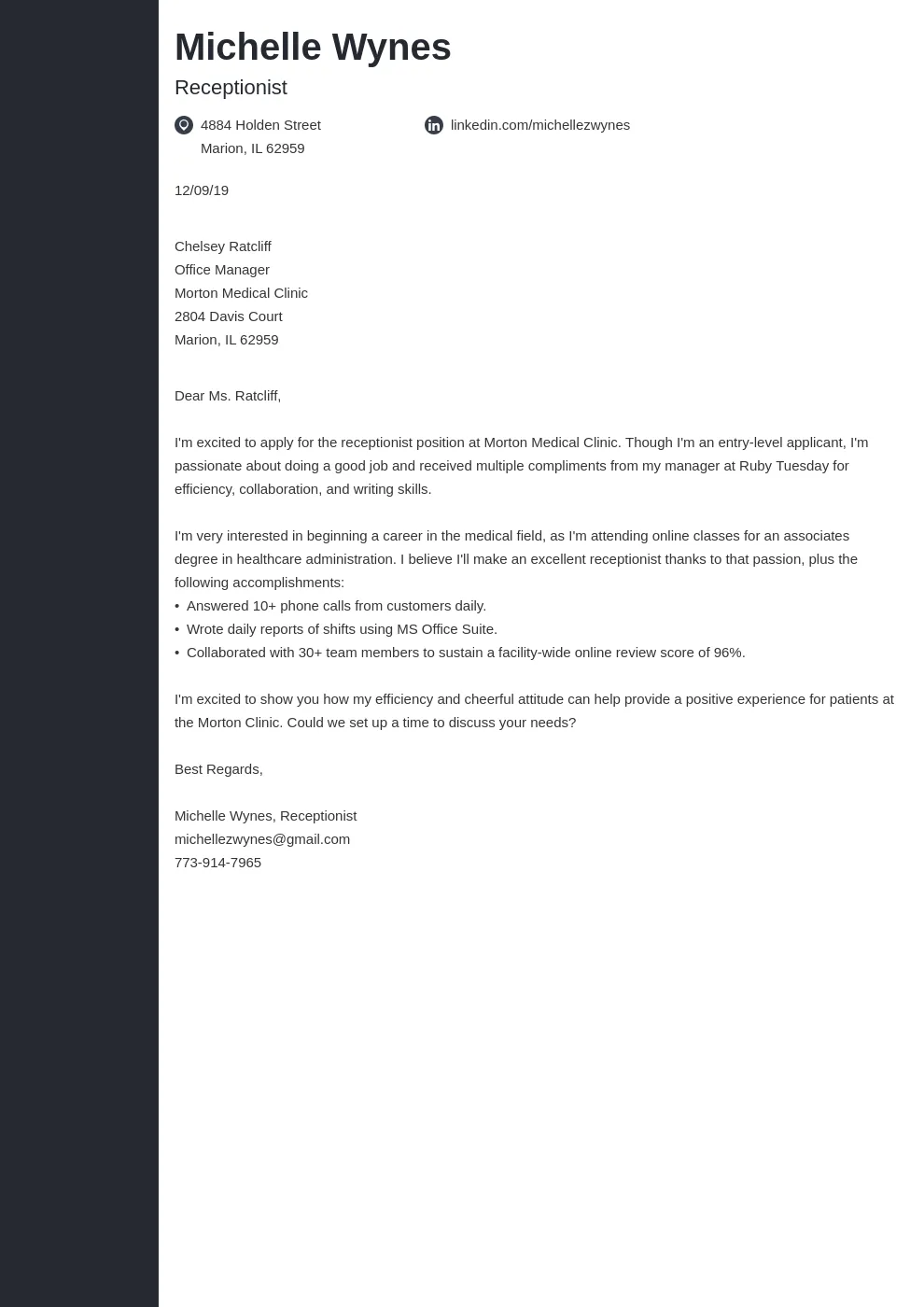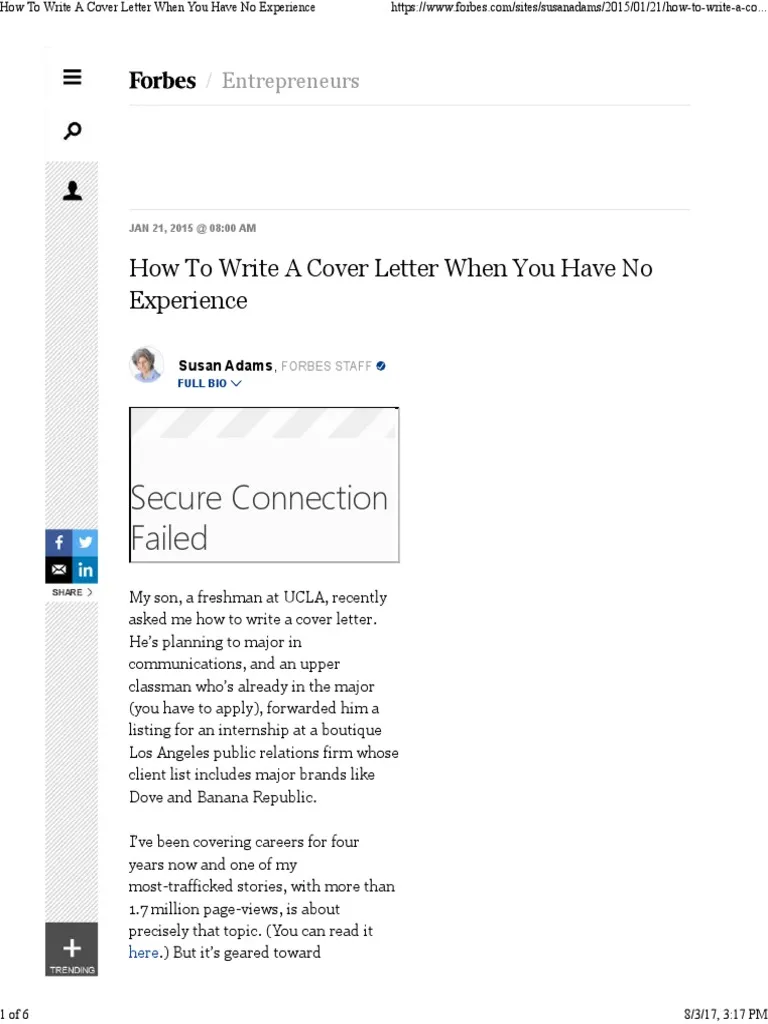Writing a cover letter when you lack direct experience can feel daunting, but it’s definitely manageable. The key is to strategically position yourself, highlighting what you do bring to the table. This guide provides actionable tips on how to address the lack of experience in your cover letter, transforming a potential weakness into a strength and increasing your chances of landing an interview. By focusing on your skills, enthusiasm, and potential, you can create a compelling narrative that resonates with hiring managers and demonstrates your suitability for the role.
Understand the Situation
Before you even start writing, take a deep breath and understand the perspective of the hiring manager. They are looking for someone who can fulfill the role’s requirements, but they also recognize that every candidate has a starting point. Many entry-level positions and internships are designed for individuals with limited experience. The company is often more concerned with your potential, attitude, and transferable skills. Recognizing this can alleviate some of the pressure and allow you to approach your cover letter with a more confident and strategic mindset. Research the company and the specific role, and try to understand what they value most in a candidate.
Acknowledge, Don’t Apologize
It’s okay to acknowledge your lack of experience, but avoid over-apologizing. Phrases like “I know I don’t have much experience, but…” can undermine your confidence from the start. Instead, frame it positively. Acknowledge the gap briefly and immediately pivot to what you do have to offer. For instance, you could say, “While my professional experience in [specific field] is limited, I am eager to leverage my skills in [skill 1] and [skill 2] to contribute to your team.” This approach shows self-awareness without dwelling on perceived shortcomings and demonstrates your proactive attitude to adapt and learn on the new job.
Highlight Transferable Skills

Even without direct job experience, you likely possess a wealth of transferable skills – abilities that are applicable across different roles and industries. Think about skills you’ve gained through previous jobs, volunteer work, academic projects, extracurricular activities, or even personal endeavors. Some examples include communication, teamwork, problem-solving, time management, leadership, and critical thinking. In your cover letter, identify the key skills the job description requires and then provide specific examples of how you’ve demonstrated those skills in other contexts. This is your chance to show that you have what it takes to succeed, even if your experience isn’t perfectly aligned.
Emphasize Education and Training
Your education and training are valuable assets, especially when you are addressing a lack of professional experience. Highlight relevant coursework, projects, and academic achievements that align with the job requirements. If you have a degree, mention your major and any specializations. If you’ve completed relevant certifications or training programs, be sure to include them as well. Describe any projects or assignments that provided you with hands-on experience or allowed you to develop skills that are directly applicable to the role. Remember to quantify your achievements whenever possible, using numbers to demonstrate your accomplishments. For example, you could mention the grade you got on a relevant project or the number of people you worked with.
Showcase Relevant Projects
If you’ve worked on any projects, whether in school, as part of a volunteer role, or even as a personal endeavor, showcase them prominently in your cover letter. These projects provide concrete examples of your abilities and your willingness to take initiative. Describe the project, your role, the skills you utilized, and the results you achieved. Tailor your project descriptions to align with the job description, highlighting the aspects that are most relevant to the position. If you can, provide links to a portfolio, website, or online examples of your work. Remember that the goal is to show you can put your skills to the test, even outside of a paid work environment. This will demonstrate your ability to learn and adapt quickly to the challenges and demands of the job.
Focus on Your Enthusiasm

Your enthusiasm and passion for the role and the company can be a major asset, especially when you’re light on experience. Let your excitement shine through in your cover letter. Explain why you’re interested in this particular role, why you’re drawn to the company, and what you hope to achieve. Research the company’s mission, values, and recent projects, and reference them in your cover letter to show that you’ve done your homework and are genuinely interested. Demonstrating genuine interest can go a long way in convincing a hiring manager that you are the right fit, even if you are early in your career. A positive attitude and a willingness to learn can be more valuable than years of experience, especially in entry-level positions.
Demonstrate a Willingness to Learn
Hiring managers appreciate candidates who are eager to learn and grow. Explicitly state your willingness to learn new skills and take on new challenges. Mention any specific areas where you’re interested in developing your expertise, and explain how you plan to do so. If you’ve taken online courses, attended workshops, or read relevant books, mention them. Showing initiative and a proactive approach to learning demonstrates your commitment to professional development and your potential for future success. You can mention courses you plan to take or skills you plan to master once you are in the role.
Tailor to the Job Description
The most crucial tip for any cover letter is to tailor it to the specific job description. Carefully review the job posting and identify the key skills, qualifications, and experiences the employer is seeking. Then, use your cover letter to address those requirements directly. Highlight the relevant skills and experiences you possess, and provide specific examples to support your claims. Avoid using a generic cover letter template; instead, customize your letter for each job application. This shows that you’ve taken the time to understand the role and are genuinely interested in the opportunity. Tailoring your cover letter will improve your chances of getting noticed and showcasing your value as a candidate.
Quantify Your Accomplishments

Whenever possible, quantify your accomplishments. Instead of simply stating that you “improved customer service,” provide specific metrics, such as “Increased customer satisfaction scores by 15%.” Instead of saying you “managed social media,” state “Managed social media accounts, resulting in a 20% increase in followers.” Using numbers and data provides concrete evidence of your skills and abilities, making your claims more credible and impactful. Quantifying your accomplishments also helps hiring managers easily understand the value you can bring to the company. It makes your cover letter more compelling and makes you stand out from the other candidates.
Proofread Meticulously
Finally, always proofread your cover letter meticulously before submitting it. Errors in grammar, spelling, or punctuation can undermine your credibility and detract from your message. Ask a friend, family member, or career advisor to review your cover letter for any mistakes. Pay close attention to detail, and ensure that your letter is clear, concise, and error-free. A well-written, polished cover letter demonstrates your professionalism and attention to detail, leaving a positive impression on the hiring manager. Make sure your formatting is consistent, and that your tone aligns with the company’s culture.
Addressing a lack of experience in your cover letter is not a disadvantage; it’s an opportunity to showcase your potential and demonstrate your value. By following these tips, you can transform a perceived weakness into a strength, craft a compelling narrative, and increase your chances of landing an interview. Remember to focus on your transferable skills, emphasize your enthusiasm, and always tailor your cover letter to the specific job. Good luck with your job search!
